#International Current Affairs
Text
Stand with Palestine // Oct 2023

Chicago, IL
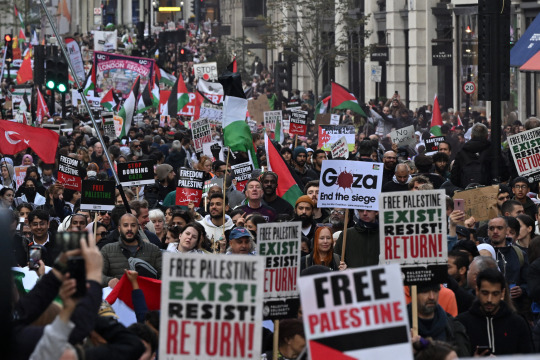
London, UK
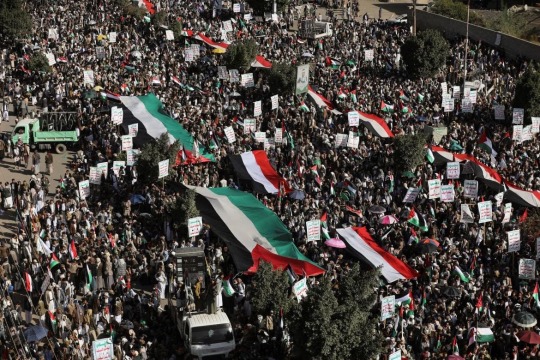
Sanaa, Yemen
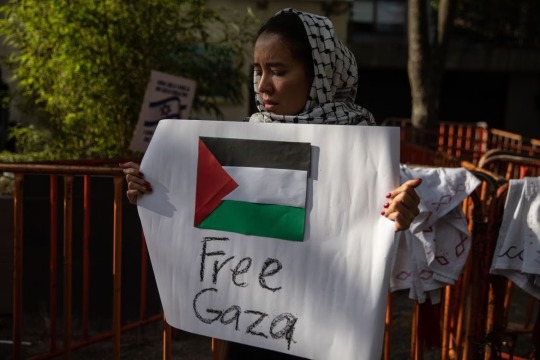
Mexico City, Mexico

Jakarta, Indonesia
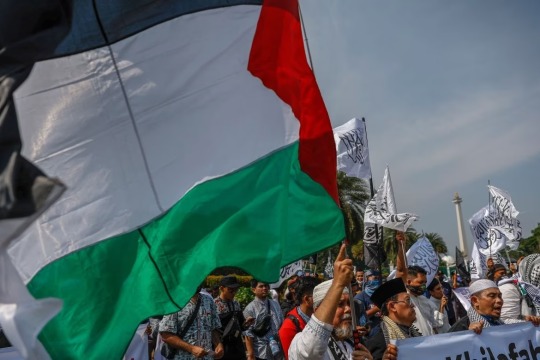
The Hague, Netherlands

Barcelona, Spain

Geneva, Switzerland
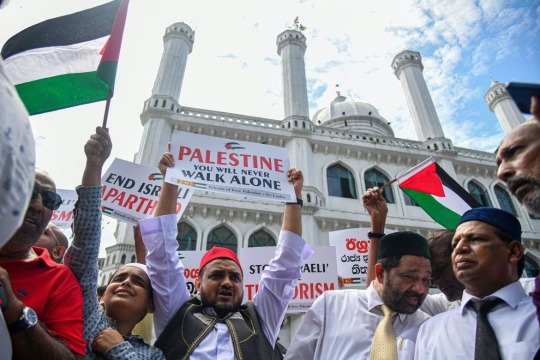
Colombo, Sri Lanka
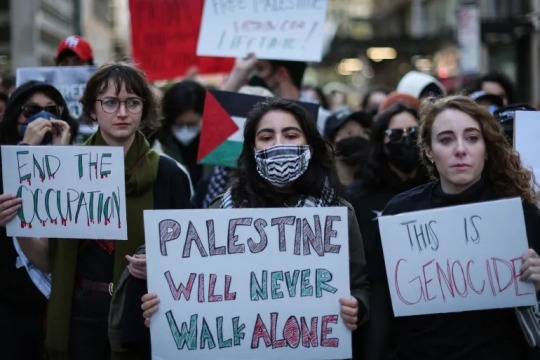
New York, NY
#free Palestine#Palestine#international politics#news#current events#protest#activism#politics#world affairs#war#the left
18K notes
·
View notes
Text
Bengaluru-Mysuru expressway National Highway
Summary
Prime Minister Modi will visit Karnataka and inaugurate the Bengaluru-Mysuru expressway.
Bangalore-Mysore Expressway
Prime Minister Narendra Modi visits Karnataka to dedicate the Bangalore-Mysuru highway to the country. The 118km project will cut the travel time between Bangalore and Mysuru from his nearly three hours to just over 75 minutes.
The NH-275 segment between Bangalore,…

View On WordPress
#a current affairs#art and culture current affairs#Current Affairs#current affairs ebooks#current affairs for upsc#current affairs for upsc ias#current affairs for upsc ias online preparation#Current Affairs In English#current affairs magazine#current affairs news#current affairs pdf#current affairs questions#current affairs quiz#Current Affairs Today#current affairs topics#daily current affairs#gk current affairs quiz#GK Today#gk today current affairs#International Current Affairs#latest current affairs#monthly current affairs pdf#National Expressway#National HIghway#news and current affairs#pdf of current affairs#state current affairs#study iq current affairs#upsc state psc current affairs mock test#vision current affairs
0 notes
Link
A well-designed news site, like Parliamentarian, can keep you up to date on world news headlines, political articles, stock market news, business publications, celebrity news, sports news, international current affairs, and a variety of other topics.
0 notes
Text
🇺🇸🇵🇸 🚨
PRESIDENTIAL CANDIDATE DR. CORNEL WEST SLAMS US COWARDICE AND LACK OF LEADERSHIP ON GAZA IN FIREY SPEECH IN SOLIDARITY WITH PALESTINIANS UNDER SIEGE
"The least we can do with this moment of overwhelming vulgarity is have a ceasefire. And yet you got these cowards in #Washington DC talking about a humanitarian pause. Please, get off the crack pipe, wake up!"
Presidential candidate Cornel West gives a powerful speech during a protest at the UN plaza protest.
#source
@WorkerSolidarityNews
#cornel west#politics#geopolitics#us politics#us news#united nations#global politics#news#war#war news#world news#breaking news#current events#international news#international affairs#middle east#west asia#gaza#israel#palestine#palestine news#israel news#gaza news#gaza war#gaza update#palestine war#palestine update#israeli war crimes#war crimes#crimes against humanity
320 notes
·
View notes
Text
youtube
Whatever your views, I urge you to watch the entire proceedings (this is only day one). This is your responsibility as a voting member of your country, a taxpayer, and a person who, at the very least, values the rule of law.
#current affairs#ICJ#International Court of Justice#International Justice Court#South Africa#Palestine#Israel#Gaza#Youtube#DW News#International Court of Justice Hearing on Gaza
120 notes
·
View notes
Text
WHERE YOU CAN MAKE DONATIONS FOR ARMENIA
kooyrigs: They’ve been carrying out on-ground projects to help Syunik and Artsakh communities ever since the 2020 war in Armenia.
All for Armenia
Miaseen
Center for Truth and Justice : Established in November 2020 in response to the Nagorno-Karabakh war. Team of lawyers and legal professionals that preserve evidence and make it accessible for current or future proceedings, whether in Armenia or abroad.
#signal boost#important#law#armenia#artsakh#stop azerbaijani aggression#politics#history#international affairs#international relations#war#lawblr#british politics#uk politics#current events#news#world news#help armenia#queen elizabeth#british royal family#kate middleton#prince william#princess charlotte#iran#social justice#halloween
1K notes
·
View notes
Text

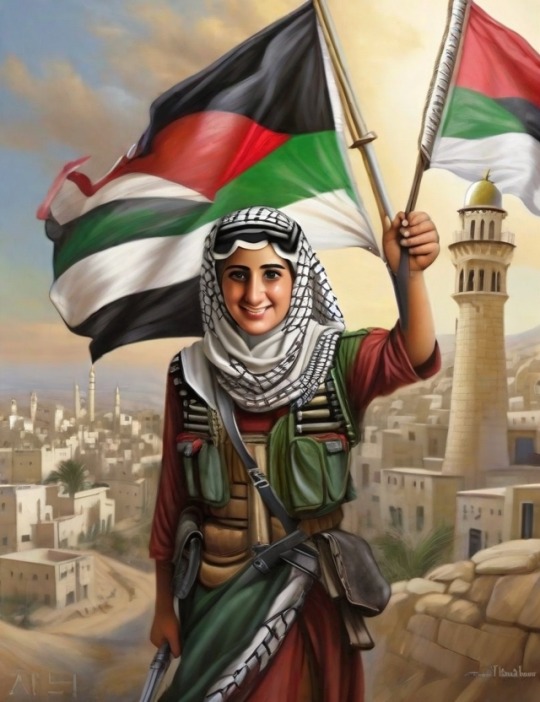
Free Palestine
#free palestine#palestine#international politics#news#current events#protest#activism#politics#world affairs#war#ai image#ai generated#ai art#ai artwork#aesthetic#women
28 notes
·
View notes
Text
Report from the Ministry of Internal Affairs
October 13th, 18:43:36, 1983
He tapped the last key on the typewriter, the arm pressing the character onto the yellow tinged paper. He scrolled up the paper to check what he had written for mistakes, silently scanning each line before it met his final approval, laying it flat on the desk before stamping it, the spring-loaded press stamp creaking in protest at the action. He placed the document onto a small stack of others, similarly stamped and perfectly neat. The man glanced at the time, reading from a small, worn Slava[1] travel alarm clock. It had long since passed when he could leave work, the man having lingered to manage some of the next days work, now it being far too late to remain any longer.
He moved back his chair, lifting the faded wooden seat by the arms as he shifted back, then grabbed the black suitcase he had brought with him and opened it up. He placed the alarm clock in first, folding it back up, his thin fingers rubbing over the false suede that covered the case, before lifting a different set of documents, stamped in red ink or marked by red-white tape, and dropping them into the case with a light fwump as the paper landed on the threadbare red lining. He put in a few more personal effects before snapping the case closed and locking it, idly twisting the dials on the locks out of sequence in a single motion before standing up, opening a drawer in his desk and dumping the first stack of documents into the drawer for safe keeping until the clerks came back in the next morning, locking it with a key he quickly tucked back into the vest pocket of his suit.
Next the man tucked in his chair and stepped around his desk, to the other side of the small room, by the door. He reached over and flicked off the light, the white battalions that had held off the dark suddenly collapsing from the rear as the man stepped out through the door and pulled it shut behind him. He walked out into a small corridor, the walls made of white-painted pre-fab panels that supported an oddly high ceiling for what was typical, giving over three meters of height. He strode down the corridor, his shoes falling silently on the rough blue-grey carpet underfoot, the colour leaning more to the latter tone where it had been worn down by footsteps. He paid little attention to the rooms he passed as he walked through the halls, and made his way to the stairwell at the end of the hall, having never trusted the elevator after it fell down during construction.
He descended the stairs in a rapid but unhurried manner, his footfalls echoing heavily through the concrete stairwell as he descended from the second to the ground floor. At the foot of the stairs opened the ground floor it was a far more open space, with polished marble floors being lined with white concrete, signs displaying the name of the building near what appeared to be a reception, though no one sat at it at this time of day. He marched through the lobby like a train following an invisible track, opening the double doors until he came to the checkpoint he expected.
At the checkpoint, a small white kiosk set slightly down the main path from the building, a guard, dressed in a drab-grey uniform with red trim and long grey-black coat and grey ushanka held out a hand to stop him, which the other robotically did. The guard held out his hand for the documentation the other was already reaching to hand him, both quite practiced in their roles.
“How has your evening been, Comrade Iveshnya?” the guard asked, addressing the man as he looked over his documentation, comparing the face in the documentation before him. Pavel Ilyich Iveshnya[2] was a reasonably tall man, about six foot one, and in his late fifties. He had a long face with a tall brow, topped with black hair combed straight back. The most dominant feature on his face was his beard, it was neat and well tended-to, the clumps of marbled grey-black facial hair almost layered like roof tiles, meeting at a point about five centimetres below his chin. You could never see his mouth, hidden behind his somewhat trapezoidal moustache, leaving you with only his dead-fish eyes to inform you some detail of his mood, lest you could parse through the minutiae of his tone.
He was wearing a black suit, the jacket single breasted and double vented with matching pleated trousers, over a white shirt covered with decorated patterns on the placket and the collar, a black tie falling long across his front. On his lapel there was a soviet star badge, denoting his membership of the party, along with a badge depicting his service to the MVD[3].
“Fine, thank you, Comrade Shurokov,” the man replied in a dull, flat tone, akin to striking cast iron, reaching for his documents as he did, knowing that Shurokov would have finished his inspection. Everything had been in order, as it always was, the guard then moved to check Iveshnya’s suitcase, leafing through the documents inside to check for contraband or restricted documents. As usual, he found nothing an handed back the suitcase.
“Everything appears to be in order,” he stated in an official drone before opening the gate to allow the man through. Iveshnya nodded to him and continued on through the gate, Shurokov’s partner, a burly woman with perfume stronger than vodka and a personality to match called out,
“Have a good evening, comrade supervisor!”
“Thank you!” he called back in a loud but level tone, walking down the pale stone steps that dropped down onto the street. He strode down it, the chill night air walking along with him, a familiar friend to the man, occasionally glowing from the irregular light of streetlights, shining on the half-finished tram tracks in the centre of the road or the glistening cables overhead, blanketed in thin frost. The street was flanked by building sites, great, fantastical projects in varying states of completion, flanked by tall Breznevka’s[4] the bland buildings standing like droll monoliths over the soon to be fantastical structures in the foreground. [expand more when you have the book numnuts]
He didn’t look at the skeletal structures as he walked, continuing on down the long street as the sound of his footsteps echoed through the night air. He came to a well dressed building, single storied but long across the street, with triangular framed pillars supporting the roof, raised at the face and rear, done of clean white stone, mosaic murals depicting scenes of scientists workers and soldiers set between the pillars on the wall behind. He walked up to the door, a white sign bearing blue Cyrillic reading, ‘метро’, showing the main metro station of Nizki-Gorod[5]. He walked through, the building half-lit at this late hour, the wide lobby empty, along with the café that adjoined it, its blacked out inside staring out into the lobby to the ticket offices opposite, similarly abandoned. Pavel strode over the tiled floor, the grey stone dusty and dry underfoot, walking directly over to a set of three stairs, ringed by white bannisters and set in the middle of the floor, and descended them, the steps fine paint slightly marred even after what little use it had seen by the local builders, soldiers and myriad workers already coming to the soon-to-be city.
The platform was well not well lit, with a tall, vaulted ceiling done in a style reminiscent of the Moscow metro, one of the few allowances to Stalinist[6] stylings in the city, the walls painted with pinkish plaster, white stone pillars standing on the wall all appearing rather dark and unnerving to most, not improved by the half-built state the actual platform had been opened in, parts of the platform simply being scaffolding over the pitch black stone below.
He stood near the centre of the platform, on the periphery of one of the few working lights to his left, checking his watch for the time, a Pobeda[7] with a black dial, gold hands, a smaller second dial at the ‘6’ position, and green numbers, somewhat matching the dark green leather strap, seeing it was now about three minutes past eight, the next train being scheduled for twenty past eight. He stood still, straight backed and stern, waiting for the train. As he waited, he felt a presence to his right. It was one that immediately made itself unwelcome, giving the same sensation of putting your hand too close to something dangerous. He felt it standing to his side, glancing to look at it. Beside himself he saw a tall figure, about two or three foot taller than himself, with an irregular, discordant form, flesh that appeared like the personification of radio static, pitch black with bristling form like a wild, monstrous, wolf standing like a man with glowing white eyes, its limbs long and lanky as it loomed tall over the man, arching down towards the old man.
“Good evening, Comrade supervisor,” they greeted in a pleasant voice, their expression shifting into a sincere smile, cocking their head to the side as they leant down to be eye-level with their superior.
“Good evening Miss. Volkov,” Iveshnya answered, nodding to her in greeting, though his face remained passive. Volkov wore a black suit, much looser than Pavel’s own and adjusted to her odd form, wearing trousers, for warmth along with her own preferences, a plain white shirt worn underneath. She wore no shoes, walking on her bare paws, semi-digitigrade in biology, further increasing her height.
“I rarely see you take the metro sir, are you going somewhere?” she asked in a kind tone, smiling at the man, taking pain to not bare her teeth as she did.
“No, this is my usual train, this is simply an unusual time for me,” he answered flatly. Volkov nodded pleasantly, wating a moment to see if he would continue, straightening back up when he didn’t, politely accepting the end to the conversation. Her superior was not exactly known for small talk. The train came after about ten minutes, the blue 81-series shining its headlamps down the tunnel, illuminating the incomplete station as it slowed, stopping astride the platform. The train was rectangular in appearance, with a flat, squarish face on the 81-717 control cars. It was made of eight cars, including the two control cars at each end. Three of the trailer cars, 81-714’s, were perfectly normal, but the other three, set at the rear of the train, were noticeably taller, giving an extra meter of headspace to the car. It was a special car, used to accommodate those of taller stature, such as Miss. Volkov who was walking over to the cars herself.
There had been some contention over simply standardising on the taller trailer cars for all of the metro cars… but the suggestion was rejected, it being deemed far to expensive by the Ministry of Construction[8] as it required national adjustments to the metro tunnels, even where no-one who needed the cars resided.
Iveshnya glanced at her as she went, stepping into a car himself, the sliding doors pressing shut just after. The interior of the car was reasonably well kempt, though dirty by this time of day. The walls were painted in a cream paint, longitudinal seats set against the wall, the brown leather somewhat matching the dark linoleum floor of the cab. Iveshnya sat down on one of the seats, keeping his suitcase on his lap as he looked out the porthole window opposite, illuminated by the white bar lights overhead.
There was only two other people in the cab, a thin man with one arm and a face wrapped in bandages stained black-blue with some scentless liquid wearing an old style of dress, and a plump babushka[9] wearing a green cardigan over a worn paisley shirt, a kerchief covering her grey head covered with red embroidery that was matched on the cuffs of a pair of slacks she wore, neat red thread done in twisting, almost Celtic patterns.
The train gave a start then steadily accelerated, continuing down the line, leaving the half finished platform behind in the half-darkness it lingered in. The black tunnels whipped past the windows of the car, accompanied by the rhythmic clacking cadence of the steel wheelsets underneath them, the trainset speeding forward. It had to do a loop through the city’s line before it turned around, rushing past the yet unopened stations, desolate with no one to yet serve in the unfinished districts. After the final stop in the line, the trainset began to quicken its pace, not by much, but enough to be noticed for those familiar with it or sensitive to that sort of things. After about three hours of quick speed, Iveshnya stood up, making sure nothing had fallen out of his pockets through the journey, then walked to stand by the door. About a moment later the driver announced they were approaching the next station, Iveshnya’s stop. The train came to a slow but sure stop, the doors sliding open as the man stepped out onto the platform.
It was far less elegant of a construction than the ones before, or at least what they were planned to be. It was single platformed, naturally becoming the bottle-neck of the expanding line, made of blue-white tiles set in hollow squares, two pillars stood just adjacent to the edge of the platform, square in profile, with posters on the inner faces. The ceiling was set low, though still tall enough to accommodate the modified 714’s, and flat, lacking any decoration bar from four red stars in each corner of the ceiling. He walked through the station, hearing the train set off again behind him, the electric whine of the engines echoing slightly behind him as he began to ascend a rather wide set of concrete steps, made so each step was a different colour than the layer before it, either a light or dark grey. The steps terminated near directly onto the pavement, being covered by a prefab shelter, a large glowing clock set on each side of the entrance into the walls of it, declaring the time to be about thirteen minutes past midnight.
Ivehsnya turned right from the shelter entrance, walking at a flat pace. A number of cars, their wipers removed[10], were parked upon the curb, the area around the metro station not being truly built with cars in mind, though not that many could truly afford them, or would risk the price of fuel needed for any serious journey. The skyline that surrounded Iveshnya was of aged Khrushchevka’s[11] of varying types set in blocks, small shops, bars and the like shoved between low-rise apartments surrounding dark courtyards. The city was slightly distinct however in some of the more recent construction, part of a new breed of ideas from the architects [], similar to what was being constructed in Nizki Gorod. Unusual structures of fine construction, grand in near every aspect…
Iveshnya did not live anywhere near these.
He walked through the small city, the unlit streets easy for him to navigate even still. Eventually the streets began to become sparse, the clusters of houses thinning as the salient of a street struck out into the wide grasslands the city lay upon, the open space filled with dark, tall grasses and soulless wildflowers, hushing as a cold, dry wind blew across the darkness. Eventually the silhouette of Iveshnya’s home became clear. It was a five story Khrushchevka, a K-7 most likely, a small shop to its side along with a bus stop on the street. He often took it, but it was being serviced at the moment. A few other similar buildings lay on the perpendicular street at the promontory of the salient, abandoned bar from a few lingering spirits and eldritch creatures.
He walked to the entrance of the building, opening the door and stepping into the foyer. I was lit, though dimly, the almost reluctant light glowing on the blue painted staircase ahead, just wide enough to carry down a coffin. Much of the paint was peeling, a mark of its age along with the clusters of jetsam that blustered in through the door with the wind, or simple mess left by teens who used the stair as a hangout where they could not be easily seen, and succinctly, punished. He climbed up to the third floor, his footfalls echoing slightly up the stairwell. He came to the landing that led to his apartment and walked to the door, unassuming and uniform though the only one that seemed to get any use on the floor.
He pressed the key into the lock, twisting it deftly as he pushed open the door. The hall of the apartment was quite plain, intruded upon by a rack of coats and hats hung up, ready to be used. A cheap rug was laid across the entrance way, a deep red colour with various mechanically woven patterns busying its surface. The walls were white matching the celling overhead, sporting a few lights that illuminated the room. He strode forward, placing his suitcase onto a small cabinet in the living room, set against the small wall. The living room itself was occupied by a large stenka[12] on the leftern wall, the wooden surface of this furniture wall was dark brown. It was stuffed with shelves and compartments, one side with clear glass doors filled with crystal and porcelain tableware, the opposite end housing a radio, a kreslo-krovat[13] a small folding chair with pale square wooden sides and plum coloured upholstery faced it from the right side of the room, a small square coffee table sat between the two. Iveshnya walked over and turned the radio on, letting the volume swell before turning around to walk to his bedroom. It was similarly plain, occupied only by a three-wing dresser, a bed and bedside table, the bed being shoved against the wall, on which a large rug was hung to stop him from laying against the cold concrete in his sleep. He hung back up his suit, relacing his shoes for something softer and grabbing a pair of worn pleated wool trousers, greenish in colour hanging baggily from his waist.
He walked out of his room, taking a detour into the kitchen to grab a bottle of vodka and a sandwich, before flopping down into the chair in his living room. He leant back as he sat, letting his mind swim in the music, alone in the cold apartment, gripping, panicked, the arms of his chair until his knuckles turned almost white, unconsciously counting along with his watch the seconds until day. He poured himself a shot of vodka, drying out his mouth with the stale bread before he swallowed, the chill liquid not offering him much ease. He unfolded the chair, the plum coloured seat laying out like a bed, barely wide enough for a single person, especially with the wooden wings of it that constricted him. But, he didn’t mind the discomfort, falling asleep with a semi-strained expression as the radio continued to loudly play through the apartment, drifting over the two empty beds.
[1] Cлава, lit. Glory. Initially called the Second Moscow Watch Factory, it was the second watch factory in the USSR intended for solely civilian watches in 1924.
[2] Павел Ильич Ивешня
[3] Ministry of Internal Affairs of the USSR was the interior ministry of the Soviet Union from 1946 to 1991. Its main roles, following the separation of control over State security into the KGB as a separate agency, was control of the civilian police, investigation of fraud, maintain civil order and quashing unrest, and a number of other duties.
[4] Брежневка. A general name for a type of buildings that began to be constructed while Leonid Ilyich Brezhnev was leader of the Soviet Union. They are usually constructed from bricks or pre-fabricated concrete panels, with between nine and seventeen floors, with over thirty different varieties being constructed.
[5] Низкий город. A fictional city created for this story. Its literal meaning is Low-city.
[6] A type of architectural style that was employed under the leadership of Joseph Vissarionovich Stalin, also know as ‘Soviet Classicism’ or ‘Stalinist Empire’ style. It drew influence from socialist realism movements along with Gothic styles, and was used mainly on government projects.
[7] Победа, lit. victory, a Soviet watch brand established in the wake of the second world war, with Stalin himself deciding the brand name and order than the first watched be ready by the first year of victory celebration(1946).
[8] The Ministry of Construction (Министерство строительства) was a government ministry of the USSR.
[9] Russian slang referring to an old woman or grandmother.
[10] It was a common practice for Soviet car owners to remove the windscreen wipers from their car while it was parked, or otherwise unattended to prevent their theft, keeping them either in the glovebox or in their apartment until it rained and they became necessary.
[11] Xрущёвка. A general term for a type of building that emerged from the 1960’s under the leadership of then leader of the Soviet Union, Nikita Sergeyevich Khrushchev. The predecessors to Brezhnevka’s, they only reach up to five stories, with some lower, and feature extremely similar construction, as the later high-rises used the same construction guidelines as set in 1963.
[12] A term used to describe a combined cabinet/furniture wall that was relatively common in Soviet apartments.
[13] Кресло-кровать, a fold out chair-bed (Lit. translation), that was common in Soviet interiors.
I'm not Russian so do forgive me. I encourage anyone and everyone who can to correct me or to offer suggestions for monsters to use.
@xatsperesso @toomuchhobbies-toolittletime @guesst @truegoist @theriu @adanaac @hiddenfolk @sleepy-gry
Part II
#I must firstly apologize as this is technically being released in a un-ready state as some description and two references have been omitted#due to me currently lacking the book that I intended to reference.#I plead for you to forgive me and enjoy it at its current state#original writing#creative writing#writing#writers on tumblr#Report from the Ministry of Internal Affairs#yokai#mosters#fairy tales#soviet#HMAD
15 notes
·
View notes
Text
CHRISTIANE AMANPOUR, CHIEF INTERNATIONAL ANCHOR: Welcome to the program, everyone. I’m Christiane Amanpour in London.
For 10 straight days, protests have engulfed ever increasing parts of Iran. The most severe since the so-called Green Revolution of 2009. The fury this time is over women’s rights, especially the current hard-line government’s crackdown on the dress code. It erupted after the death of 22-year-old Mahsa Amini, who had been hauled in over her headscarf by the Morality Police and died while in their custody 10 days ago.
State media and human rights group say that dozens have been killed in the violence so far. Despite internet restrictions and the harsh reaction of security forces. The protests show no sign of abating. In fact, they’re spreading. Demonstrations took place outside the Iranian embassies in London and Paris over the weekend.
Joining me now is Marjane Satrapi. A French-Iranian author and filmmaker who rose to global super stardom with her graphic novel “Persepolis” which tells a story of her coming of age in Iran during the birth of the Islamic Republic and her personal struggles with that oppressive environment
Marjane Satrapi, welcome to the program.
MARJANE SATRAPI, FILM DIRECTOR AND AUTHOR, “PERSEPOLIS”: Hello, Christiane. Thank you for having me.
AMANPOUR: So, I wanted to get your feeling as you watch what’s unfolding there. How does it make you react, given that you saw quite a lot of that when you were much younger and still growing up in Iran?
SATRAPI: Well, obviously it gives me lots of sadness because I — the situation doesn’t change. When I wrote “Persepolis”, it was this hope that, you know, we’re — we will be [living] in a better word and in a better Iran. The situation has not changed. It gives me lots of anger, but at the same time, it also gives me lots of joy because this revolt, these demonstrations, they’re extremely different from all whatever else we have seen here in Iran.
Actually...for example. The first demonstration against the veil, that was in 1980. The women went to the street to contest that they didn’t wanted to put veil. But not only they were alone, they were not so much supported by the men. But even the leftist opposition left them alone saying that the veil that was not their problem and that was a fight of social classes.
When that was a demonstration in 2009, the Green Movement, again that was a seek for a reform. They want, you know, the country to be transformed. And that was this reformist, the so-called reformist that were actually part of this system. Mousavi was the big leader but at the same time, he was the prime minister of Iran with — at the darkest time actually of the Islamic republic. And that was the reform.
...Now, what I see actually is a fight for the women, but the women, they are not alone. There are with boys. ...The boys and girls, they’re all this new generation.
AMANPOUR: Marjane, let me ask you because you said it’s very different this time. And you have been speaking to young people in Iran —
SATRAPI: Yes.
AMANPOUR: — from where you are in Paris. What are they saying to you?... Boys and girls, what are they saying to you?
SATRAPI: What they say to me is that they don’t want the system anymore. They want democracy. I mean, they don’t believe in the reform and their rights. Iran’s government is a dictatorship. If a dictatorship opens for reform, for being transformed, it stops being a dictatorship. Reform and dictatorship doesn’t go together.
So, this is something not possible. You cannot make this government to become a democratic government because it’s... a dictatorship. And they want a new — they want a new government. They want a new regime. They want a new system.
And I talked to them and this generation, they’re very, very different from us. I mean, we have to know that, you know, the time that the Islamic revolution happened, only 40 percent of Iranian people, they could read and write. Now, it’s above 80 percent of them.
This people they have — they’re born with internet. They have access, actually, to the information around the world. This new generation — first of all, they claim not to be sexist at all. You see — I mean, the big slogan is, zan, zindagi, azadi. Woman, life, freedom. And the Human rights
— I mean, the women rights is the human rights.
In any society, Iran or anywhere else in the world, if the women are repressed, if half of the population there were — they’re actually worth [less than] ... the other half just because of their gender, we cannot talk about democracy and human rights. Women right and human right is the same thing.
And this is something that they have understood.
So, that gives lots of hope because I always thought and I always believe that the biggest enemy of democracy is the patriarchal culture. Yet these young boys, this young — I spoke actually with one today, and he was like, of course, we are equal to the girls. Of course, there is no difference. And the — this generation, you cannot fool them like they fooled our generation. And Iranian people, in general, they’re much more secular than 40 years ago.
And this is exactly the basis of the problem. You have a government which is not absolutely in touch with its population. It doesn’t know what the population wants. They think they are the majority. They have a basis, for sure. But this is not the majority of the country. If the majority of the country was with the government, it would not be called a dictatorship again. And, yes ...knowing all of that, if a government is not in touch with its population that it cannot govern them because you have to know your people.
AMANPOUR: Well, we’ll talk about that in a minute because this has been going on for 40 years and more, as you’ve just said. But... just so people understand this battle with the Morality Police has been going on since the very early days of the revolution. And you, yourself, wrote about it, drew it in your book, “Persepolis”, and then it’s a scene obviously in, you know, in the film...
SATRAPI: Well, you know, the veil is — actually, this veil is the symbol of this Islamic. You know, it’s the big tree that hides a big forest. A veil is an excuse. I mean, when we were kids, I mean, they literally told us, men, when they will see your hair, they will become horny. And this is why you have to cover your hair.
So, I don’t know. I mean, if somebody by seeing my hair or by seeing my body, the reaction that it creates in this person is out of my business. That is their business. If they become horny, you know, they can take a cold shower, or I don’t know, go and see a shrink or try to look somewhere else, you know, to the sky or something. So, that is the way we grow up.
So, the way, itself — you know, like each year we fought a little bit to have one millimeter more of hair coming out. And it was another question of fashion, each millimeter of hair, for us, that we could show more, it was a step forward towards our freedom.
Because this veil, actually in Iran, means you, woman, you’re a sexual object that is just here for the desire of the man, you tempted the man. So, this is why for you not to create this temptation, you have to cover your hair.
Now, what they forget actually, in this society, the woman of this society, 60 percent of the students in Iran, they are girls, and our best they are girls. They only Nobel Prize that they have had in the history of Iran was won by the woman. The biggest medal in mathematics, science was won by Maryam Mirzakhani in Iranian woman. The Iranian novelist, the women, they are the one that are the most translated, the most read, et cetera, et cetera. I just saw, you know, in America, they published the name of the 10 most successful bankers in the U. S., and three of them, they are Iranian women.
They have this highly educated, extremely powerful, extremely intelligent women, and they tell them you have to cover your hair because we might get tempted by you. Well, just don’t get [tempted].
You know, I mean they reduced the woman to this — to the — to just a piece of me.
AMANPOUR: Yes.
SATRAPI: And if you want to talk about a piece of me for the Iranian people, you know, raw, medium, or well-cooked, a mawla (ph) is a mawla
That’s not going to change....
AMANPOUR: But in fact, the Morality Police are more aggressive and less aggressive over the last period of 20 plus years, depending on which president is in power. So, the question I have for you is certainly a lot of expats hope and a lot of people there hope that this is the end of this dictatorship as you put it.
But is it? We’ve seen protests come and go and we’ve seen them be brutally put down.
SATRAPI: Yes, I know. But every movement that has been a suppressed and has been put down has put us a little bit forward.
You know, democracy is a culture. Is — actually, is an education. You have to have a democratic culture, actually, to inspire to the democracy. Otherwise, it does not work. We have the example of Afghanistan, for example.
So, when you have this youth that want a change, maybe it will not happen today and maybe it will, you know, let’s not lose our hope. Maybe it will happen. But this is the basis, you know, of the future. The future of this kids that are 20 years old now. The future of the country is not some old bearded guy sitting, you know, somewhere hiding from the population. These are the future. And this is the people of Iran.
And when people they want equality, when people they want freedom, after a while it breaks down. Never forget — we should never forget that Soviet Union with all their KGB, everything, for 70 years, you know, they were big dictators. We are right. We are right. At then they explode because the human being is made for freedom.
And this whole idea that human rights is a westerner conception. No, it’s not a westerner conception. It’s a standard for living and it concern all the human being. And again, this question of veil and the police of that, you know, if I — me, as a person, I don’t have the right to wear what I want or to show my hair or not to show my hair. How do you expect me to have the right to think or to express myself or to express myself or to choose for myself?
Excerpt from Amanpour and Company, September 26, 2022.
Edited by me, September 27, 2022. "..." indicates cut text, "[ ]" indicates text edited for clarification.
The full episode and a transcript of the full episode is available here.
#marjane satrapi#christiane amanpour#current affairs#international politics#iranian politics#amanpour and company#honestly satrapi has this incredible skill at acknowledging the brutality without despairing#such a great thinker and writer everyone go read persepolis right now#also english is at least her third language so if any of you read what she says in bad faith that's an instant block
54 notes
·
View notes
Text
“Just because it’s not on your own doorstep doesn’t make it right”
We Need More Bricks - Neck Deep
#anti genocide#free palestine#free gaza#intersectionality#international affairs#current events#never again#free syria#free congo#free yemen#jews for palestine#palestine will be free#kurdistan#kurdish#ukraine#India#ethiopia#free sudan#afghanistan#cameroon#Columbia#genocide warning#genocide emergency#indonesia#armenia#armenian genocide#congo genocide#palestinian genocide#social justice#ethnic cleansing
5 notes
·
View notes
Text
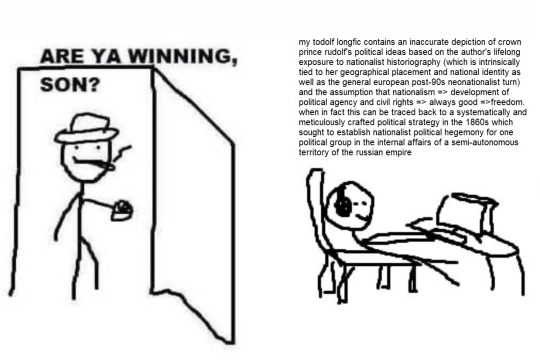
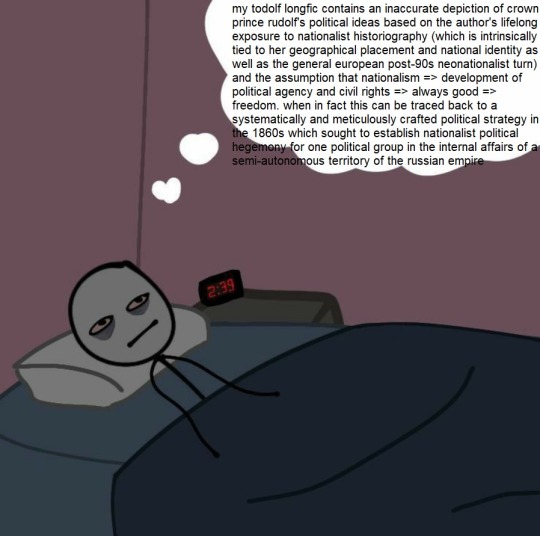
studying for an exam and haunted by this.....
#'nobody cares its a fanfic' PEOPLE SHOULD CARE#akasjjdjjgjgjdjjf#every country has its biases in history writing but learning to acknowledge them is something not even all professional historians can do#and when you learn to see them it also causes a rift in your worldview and that of most other people from your country because you stop#subscribing to/start seeing cracks in the 'foundational myth' of the nation (= part of the basis for the nation as an imagined community)#and i can't talk about this to people because they will go 'well if it didn't happen the way it did the country wouldn't be independent'#and in fact people lean on nationalism more and more because of the current state of international affairs and to some level it's needed#because it effectively motivates people#but ughhuuhughghghghh#burdened by my big brain etc#XDDDDDDDDDD#valuable learning experience etc. but idk what to do about that fanfic... i wrote the scene the way i did cos it was easy for me#i would have to do a lot of research to find a more fitting case to use and i dont have time#xD maybe i should put a note
4 notes
·
View notes
Text

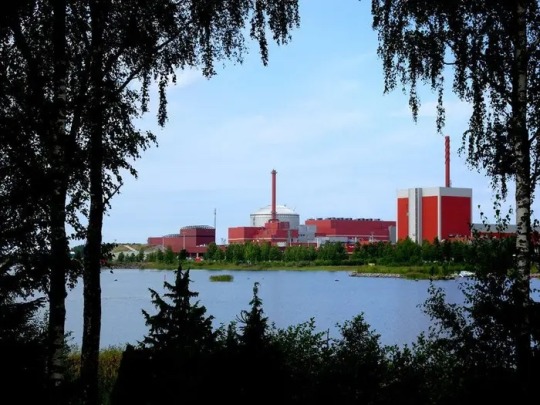

Source

#finland#international affairs#news#current events#climate change#climate justice#green energy#green new deal#environmental justice
12K notes
·
View notes
Text
ईरान और सऊदी अरब वर्षों की शत्रुता के बाद संबंधों को फिर से स्थापित करने की शरुआत
ईरान और सऊदी अरब वर्षों की शत्रुता के बाद संबंधों को फिर से स्थापित करने के लिए शुक्रवार को सहमत हुए, जिसने खाड़ी में स्थिरता और सुरक्षा को खतरा पैदा कर दिया था और यमन से लेकर सीरिया तक मध्य पूर्व में ईंधन संघर्ष में मदद की थी।
मध्य पूर्व की दो प्रतिद्वंद्वी शक्तियों के शीर्ष सुरक्षा अधिकारियों के बीच बीजिंग में चार दिनों की अघोषित वार्ता के चार दिनों के बाद चीन द्वारा दलाली की गई डील की घोषणा…

View On WordPress
#a current affairs#art and culture current affairs#Current Affairs#current affairs ebooks#current affairs for upsc#current affairs for upsc ias#current affairs for upsc ias online preparation#current affairs in hindi#current affairs magazine#current affairs news#current affairs pdf#current affairs questions#current affairs quiz#Current Affairs Today#daily current affairs#gk current affairs quiz#GK Hindi#GK Today#gk today current affairs#International Current Affairs#latest current affairs#monthly current affairs pdf#news and current affairs#pdf of current affairs#state current affairs#study iq current affairs#upsc state psc current affairs mock test#vision current affairs#world current affairs
0 notes
Text
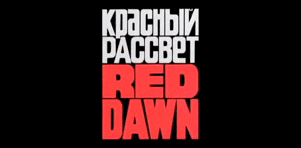
youtube
youtube

#red dawn#red scare#USA#America#us armed forces#news#current events#international affairs#Florida#taiwan#ukraine#good morning#wednesday wisdom#WWIII#American History#Wolverines
3 notes
·
View notes
Text
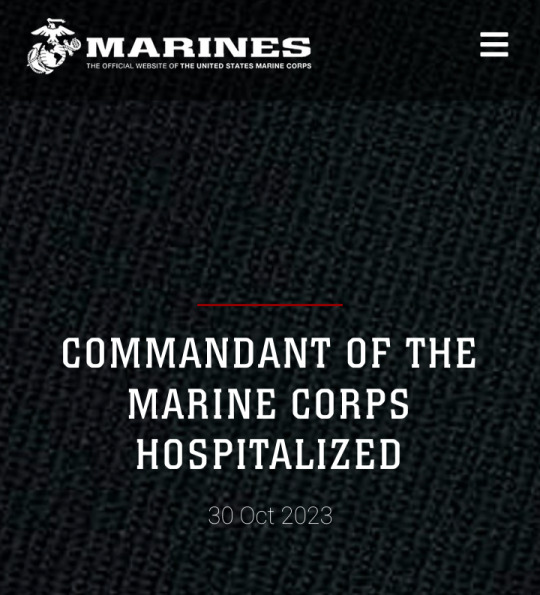
🇺🇸🚨 UNITED STATES MARINE COMMANDER GENERAL ERIC SMITH HOSPITALIZED AS A RESULT OF A MEDICAL EMERGENCY
In a statement by the United States Marine Corps. the Commandant of the US Marines, Eric Smith was hospitalized Wednesday for a medical emergency.
"Commandant of the Marine Corps Gen. Eric M. Smith experienced a medical emergency on the evening of Oct. 29, 2023, and has been hospitalized," the statement reads.
No reason was given for the hospitalization in the statement from the US Marine Corps. on the incident.
According to the statement, US Marine Corps. Lt. Gen. Karsten Heckl has assumed the duties of the hospitalized Commandant.
The statement said, "due to the vacancy in the Office of the Assistant Commandant of the Marine Corps, in accordance with 10 U.S.C. § 8044, the most senior officer of the Marine Corps in the Headquarters, U.S. Marine Corps, Lt. Gen. Karsten Heckl, is performing the duties of the Commandant."
A second statement from Lt. Gen. Karsten Heckl says the Lt. General has assumed the duties of the Commandant as he recovers from his medical emergency and offers her thoughts and prayers to the family.
The statement goes on to say, "In typical Marine fashion, I am the next Marine up. This is what we do, as so many have done before us throughout the history of our Corps. We must continue the march forward on behalf of our fellow Marines and Nation, regardless of the situation or the uncertainty that we may face. That is what our Commandant wants, and what the citizens of our Nation require of each and every one of us."
"All orders remain in effect as we await General Smith’s recovery. Stay the course," the statement finishes.
According to the statement, more updates will follow.
#source1
#source2
@WorkerSolidarityNews
#united states#us marines#marine corps#us news#us military#news#war#war news#world news#global news#international news#breaking news#current events#politics#geopolitics#military news#north america#international affairs#us politics#us wars#WorkerSolidarityNews#latest news#united states news#global politics#international politics#us foreign policy#us government#casualties#socialist politics
47 notes
·
View notes
Text
world politics/current affairs be wilding so much, like damn what happened now?
#too much current affairs#new political science books be getting extra masala#world politics#international politics#yo modi ji next when?#damn even internal politics are dramatic too 😭#sri lanka financial crisis#shinzo abe#boris jonhosn#donald trump#israel parliament dissolve#russian invasion#I'm sorry for being insensitive#aver does shit post#being a political science student at times like this is both a blessing and a curse#like damn too much happening calm down one by one please#twitter#the Philippines#uk politics#oh my heart goes for all the people who are suffering because of these shitty circumstances#seeing sri lanka crumble so badly after studying all about it's commendable growth for years now seems so unreal
3 notes
·
View notes